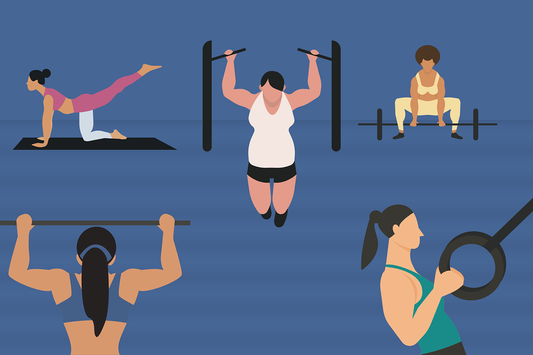
The influence of being awake through the night on the body, synchronization with external conditions and the human internal clock
Međimurski cekerWhat is the "circadian rhythm" of man, i.e. the internal clock of man?
Circadian rhythm is a biological rhythm that regulates physiological processes in the body, such as sleep, wakefulness, body temperature, hormone secretion and other body functions. This rhythm repeats approximately every 24 hours and plays a key role in maintaining the balance and proper functioning of the body.
The most well-known circadian rhythm is the sleep-wake cycle, which regulates when you feel the need to sleep and when you are awake. The circadian rhythm is controlled by the internal biological clock, which is located in the brain, specifically in the suprachiasmatic nucleus of the hypothalamus. This internal biological clock is linked to the external environment, especially light and dark, and helps the body adjust to day-night cycles.
Although the 24-hour circadian rhythm is the most well-known, there are other circadian rhythms in the body that affect various biological processes, such as the rhythm of hormone secretion (such as cortisol and melatonin) and body temperature.
Maintaining the balance of the circadian rhythm is important for general health and good sleep, and disturbances in this rhythm can lead to sleep problems and other health problems. Factors such as changes in time zones, night work and lack of light during the day can disrupt the circadian rhythm and cause disorders such as insomnia or jet lag.
Where does the name circadian rhythm come from?
The name "circadian rhythm" comes from the Latin words "circa", meaning "about" or "around", and "dies", meaning "day". Therefore, "circadian" means "around the day" or "around 24 hours". The name was created to describe a biological rhythm that repeats approximately every 24 hours, i.e. during a day and night. The circadian rhythm regulates many physiological processes in the body, including sleep, wakefulness, hormone secretion, and other biological functions that change periodically throughout the day.
A detailed description of how our internal clock interacts with external systems and the impact on our body
The circadian rhythm regulates physiological processes in the body through a complex system of biological mechanisms, and the key role in this process is played by the suprachiasmatic nucleus (SCN), which is located in the hypothalamus of the brain. Here is a detailed explanation of how the circadian rhythm regulates physiological processes:
- Internal biological clock (SCN) : The suprachiasmatic nucleus (SCN) represents the "master clock" or the main biological clock of the organism. This nucleus generates an endogenous rhythm that lasts approximately 24 hours, independent of external conditions such as light and darkness. The SCN receives light information via the optic nerve, and these signals help synchronize the internal biological clock with the external environment.
- Light and darkness : Light is a key factor in regulating the circadian rhythm. Photoreceptors in the eyes, especially light-sensitive cells such as cone and rod cells, register light changes and send information to the SCN. When light exposure is high, the SCN promotes alertness and suppresses the production of the hormone melatonin, which is responsible for inducing sleep. During the night, when light exposure is minimal, melatonin is secreted, promoting sleep.
- Regulation of body temperature : Circadian rhythm also affects body temperature. During the morning, when alertness is elevated, the body temperature rises, reaching its maximum during the day. At night, during sleep, the temperature drops. This change in temperature also helps control the feeling of wakefulness and sleep.
- Rhythm of hormone secretion : Circadian rhythm affects the secretion of various hormones, including cortisol, insulin and growth hormone. For example, cortisol, which is associated with alertness, usually peaks in the early morning. Hormones are secreted in accordance with the circadian rhythm to support the body's needs during different parts of the day.
- Regulation of metabolism and digestion : The circadian rhythm also affects the processes of metabolism and digestion. For example, appetite and digestion are regulated by the circadian rhythm, which can affect meal times and appetite during the day.
- Sleep-wake systems : The circadian rhythm plays a key role in the regulation of the sleep-wake system, which includes the control of sleep stages (such as REM and NREM stages) and the feeling of alertness during the day.
Circadian rhythm disturbances can lead to a number of sleep and health problems, including insomnia, disturbances in the work of the internal biological clock, difficulties in adjusting to changes in time zones (jet lag) and other health problems. Understanding the circadian rhythm and its regulation helps in developing strategies to maintain sound sleep and general health.
Changing the internal clock of a person, i.e. influencing the internal clock through external factors and behavior
Circadian rhythms can be altered using external factors such as light, which is often done when people adjust to new time zones or work night shifts. This adaptation process is called "entrainment" or "synchronization" and allows the body to adjust to the new circadian rhythm. Here's how it works:
- Adjusting to a new time zone : When you travel to a new time zone, your internal biological clock (SCN) is not automatically aligned to the new day-night rhythm. Exposure to light at the appropriate time in the new time zone can help to adjust more quickly. For example, exposure to morning light helps signal the body that today is the time to be awake, while exposure to darkness at night helps induce sleep.
- Working in changed times : People who work night shifts also adapt to a changed circadian rhythm. In this case, light can be useful to maintain alertness during the work shift, while during the day it is recommended to avoid exposure to bright light to support sleep.
Maintaining regular patterns of sleep and wakefulness in accordance with the altered circadian rhythm can help maintain a relatively good state of health. It is important to note that the human body has a certain flexibility and can adapt to different patterns of sleep and wakefulness. However, this will vary from person to person and may be associated with certain challenges.
Prolonged disruption of the circadian rhythm, such as working at night for long periods of time, can lead to health problems such as sleep disorders, mental health problems, metabolic disorders and other problems. Therefore, it is important that people who are exposed to such changes regularly monitor their health and take measures to maintain a balance between sleep and wakefulness and adhere to recommendations for health preservation.
The influence of "nocturnal lifestyle" on human health
Prolonged and deliberate living and working outside the natural rhythm of day and night, or the reverse rhythm of sleep, can have serious negative consequences on health. This is often referred to as the "night lifestyle" or "night shift" and such a lifestyle can cause a number of problems and disorders, including:
- Sleep disturbances : Working at times opposite to your natural day and night rhythm can disrupt your circadian rhythm and make it harder to fall asleep during the day and stay awake at night. This can lead to chronic fatigue and sleep problems such as insomnia.
- Health problems : Such a lifestyle is associated with an increased risk of various health problems, including cardiovascular disease, metabolic syndrome, obesity and an increased risk of diabetes.
- Mental health disorders : People who work night shifts have a higher risk of various mental health disorders, including anxiety and depression.
- Socio-emotional aspects : Living and working outside the natural rhythm can cause social isolation and problems in interpersonal relationships because it is difficult to adapt to social obligations and activities that take place during the day.
- Difficulties with digestion and nutrition : A nocturnal lifestyle can disrupt the rhythm of nutrition and digestion, which can lead to problems with appetite, excess body weight and other digestive problems.
Although some people work night shifts for years and seem to adapt to such a lifestyle, it is important to note that this can mean significant compromises in terms of health and quality of life. Ideally, people should follow the natural rhythm of day and night in order to preserve their physical and mental health. If such a mode of operation is unavoidable, it is important to take additional steps to minimize negative effects, including proper light management, proper nutrition, and regular health monitoring.
About the importance of regular and quality sleep
Sleep is extremely important for human health and well-being for several reasons:
- Body renewal and repair : During sleep, the body goes through repair and renewal processes. Cells are renewed, the immune system is strengthened, and the body repairs damage and prepares for a new day.
- Mental Health : Sleep plays a key role in maintaining mental health. Lack of sleep can lead to problems such as anxiety, depression and increased emotional vulnerability.
- Cognitive functions : Sleep is crucial for processing and consolidating information. During sleep, the brain processes and stores new experiences and knowledge.
- Increases productivity and physical endurance : Good sleep improves cognitive functions, concentration, memory and reaction abilities. It also improves physical endurance and sports performance.
Sleep stages: Each night of sleep consists of several cycles of different sleep stages:
-
NREM stages (non-rapid eye movements) :
- Stage 1: A light stage of sleep that transitions from wakefulness to sleep. The eyes move slowly, and the muscles relax.
- Phase 2: A deeper phase in which the body further relaxes, and body temperature and heart rate drop.
- Stage 3: The stage of deep sleep, also known as delta sleep, characterized by slow brain waves. This is the stage of deepest sleep.
-
REM phase (rapid eye movements) :
- The REM (Rapid Eye Movement) phase of sleep is the phase in which dreaming is most intense. During the REM stage, the brain becomes more active, the heart rate and breathing become irregular, and the eyes move rapidly.
During the night, the cycles of these phases alternate, and each cycle lasts approximately 90 minutes.
The amount of sleep needed varies with age and the individual, but adults typically need between 7 and 9 hours of sleep per day to maintain optimal health and functionality.
As for the circadian rhythm, it is true that there are variations between people. Some people feel more naturally awake at night and sleep during the day, and these are called "night birds" or "night types." Others are "morning types" and more easily adapt to being awake during the day. This can be partially attributed to genetics and individual differences in circadian rhythms. For most people, adjusting to social obligations (such as work schedules) tends to have a greater impact on their sleep rhythms than natural inclination.
People with a different circadian rhythm (night types) can adapt and live healthy lives, but may face challenges in social and work obligations that are focused on the day. It is important that everyone adjusts their sleep rhythm as much as possible to ensure optimal health and functionality, regardless of their natural preference.








































































